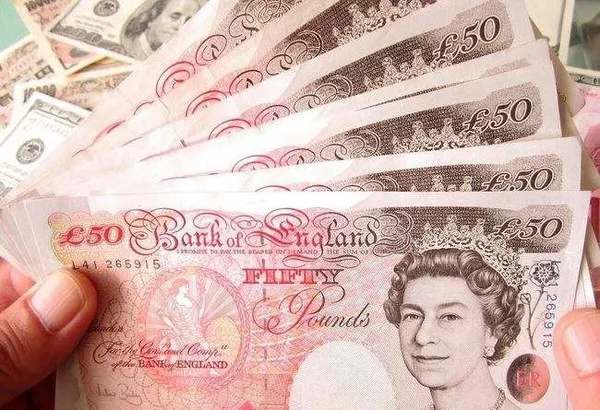The foreign exchange market is a complex and dynamic environment where currency values fluctuate constantly. One notable trend in recent times has been the falling value of the British pound against the US dollar. This article aims to delve into the factors contributing to the weakening pound-dollar exchange rate, exploring both internal and external influences that impact currency valuations.
1. Economic Factors
Trade Imbalances: Trade imbalances between countries can affect their respective currencies. A large trade deficit indicates that a country imports more goods and services than it exports, which can weaken its currency. The UK has experienced persistent trade deficits, and this imbalance can put downward pressure on the pound.
Economic Growth and Productivity: Economic growth and productivity are crucial determinants in currency valuation. When a country’s economy exhibits robust growth and high levels of productivity, it tends to attract foreign investments, leading to increased demand for its currency. Slower economic growth or low productivity levels can undermine confidence in the pound.
Inflation Rate: Inflation erodes the purchasing power of a currency, reducing its value. If the UK experiences higher inflation rates compared to the US, it can lower the relative value of the pound against the dollar. Central bank policies aimed at managing inflation, such as interest rate adjustments, play a significant role in influencing exchange rates.
2. Political Factors
Brexit Uncertainty: The decision of the United Kingdom to leave the European Union, known as Brexit, has introduced significant uncertainty and volatility into currency markets. Negotiations surrounding the terms of the UK’s departure and subsequent trade arrangements have created apprehension among investors, leading to a weaker pound.
Political Stability: Political stability is an essential factor in determining currency strength. Any political instability or uncertainty can erode investor confidence, leading to capital outflows and a weaker currency. Political developments in the UK, such as changes in government or divisive policy debates, can impact the value of the pound against the dollar.
3. Monetary Policy Factors
Interest Rates: Interest rates are a crucial tool for central banks to manage inflation and stimulate economic growth. Higher interest rates tend to attract foreign investors seeking better returns, which can strengthen a country’s currency. Conversely, lower interest rates make investments less appealing, potentially weakening the currency. Diverging monetary policies between the Bank of England and the US Federal Reserve can influence the pound-dollar exchange rate.
Quantitative Easing: Quantitative easing (QE) is an unconventional monetary policy tool used by central banks to stimulate economic activity. When a central bank implements QE measures, it increases the money supply, which can lead to currency depreciation. The implementation of QE programs by the Bank of England during times of economic uncertainty has contributed to pound depreciation.
4. Market Sentiment Factors
Investor Risk Appetite: Investors’ risk appetite plays a significant role in currency movements. During times of global economic uncertainty, investors often seek safe-haven assets like the US dollar, leading to its appreciation against other currencies, including the pound. Economic indicators, geopolitical tensions, and market sentiment can all influence investor risk perception.
Speculation and Market Dynamics: Currency markets are heavily influenced by speculation and market dynamics. Traders and speculators make bets on currency movements, amplifying volatility. Any negative news or speculations about the UK economy or political situation can trigger selling pressure on the pound, further contributing to its depreciation against the dollar.
Conclusion
The fall of the pound against the dollar is a result of multiple interconnected factors. Economic considerations such as trade imbalances, economic growth, and inflation rates all impact currency valuation. Political stability and events, particularly related to Brexit, have introduced significant uncertainty, undermining investor confidence in the pound. Monetary policy decisions, including interest rates and quantitative easing, also influence exchange rates. Additionally, market sentiment and speculation contribute to the dynamics of currency movements.
Understanding the complex web of factors influencing the pound-dollar exchange rate is crucial for businesses, investors, and individuals involved in international transactions. While the causes behind the weakening pound are multifaceted, monitoring economic indicators, political developments, and central bank policies can provide insights into potential future trends. It is important to note that currency movements are inherently volatile, and seeking professional advice and conducting thorough research is advisable when making financial decisions involving foreign exchange.


